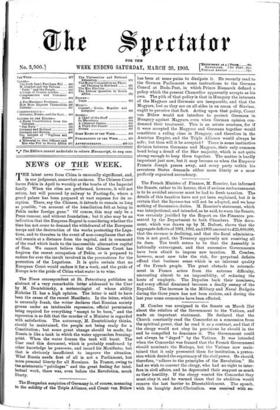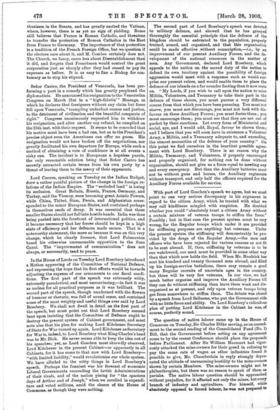Combes was arraigned in the Senate on March 21st about
the relation of the Government to the Vatican, and made an important statement. He declared that the Church constantly read the Concordat as a concession from the spiritual power, that he read it as a contract, and that if the clergy would not obey its provisions he should in the end be compelled to denounce it. The Government could not always be " duped " by the Vatican. It was intended when the Concordat was framed that the French Government should nominate the Bishops, but the Vatican now main- tained that it only presented them for institution, a preten- sion which denied the supremacy of the civil power. He should, therefore, " adhere to the principles of the Revolution." He had no wish to convert the clergy, who had no right to inter- fere in civil affairs, and he deprecated their support as much as their hostility. If the clergy wanted the Concordat they must obey it• and he warned them that its abolition would remove the last barrier to Disestablishment. The speech, with its haughty Anti-Clericalism. was received with en-
thusiasm in the Senate, and has greatly excited the Vatican, where, however, there is as yet no sign of yielding. Rome still believes that France is Roman Catholic, and threatens to transfer the protection of Roman Catholics in the East from France to Germany. The importance of that protection is a tradition of the French Foreign Office, but we question if the electors care about it, and M. Combes certainly does not. The Church, we fancy, cares less about Disestablishment thazi it did, and forgets that Frenchmen would control the great corporation just as sharply after they had ceased to pay its expenses as before. It is as easy to fine a Bishop for con- tumacy as to stop his stipend.











































 Previous page
Previous page